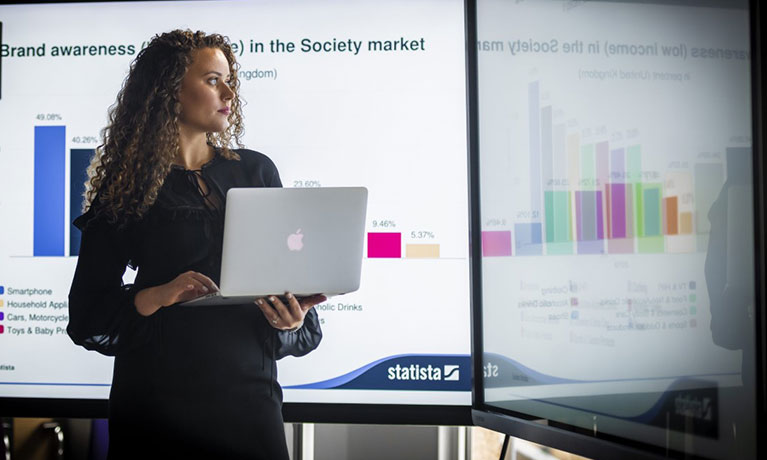Search
Financial Economics and Banking BSc (Hons)
Study level: Undergraduate
Gain expertise in economics, econometrics and financial systems, to prepare yourself for roles in corporate and investment banking, financial management or economic policy.
Course features
Year of entry
Location
Coventry University London (City of London)
Study mode
Full-time
Part-time
Sandwich
Duration
3 years full-time
4 years sandwich
Condensed first year available
5 years part-time (UK only)
Course code
N320
Start date
January 2026 - condensed
Course overview
- Complete practical2 exercises such as case studies and banking or trading simulations.
- Perform real workplace tasks using industry-standard technology.
- Take part in work experience and trips to companies and financial firms2.
The January start for this course is condensed in Year 1. Please see the ‘How you’ll learn’ section below for more details.
Global ready
An international outlook, with global opportunitiesTeaching excellence
Taught by lecturers who are experts in their fieldEmployability
Career-ready graduates, with the skills to succeedWhy you should study this course
- Industry-standard technology
Technical competence is an intrinsic requirement of a career in the financial industry, which is why we’ve embedded technological elements into your learning. You will receive regular exposure to widely used financial analysis languages, platforms and tools, including Python, Bloomberg Terminals and S&P Capital IQ. - London location
Study in the Square Mile, the heart of London’s financial district. You’ll study on the doorstep of the industry, with opportunities for placements2, and the chance to continue your development with financial market simulations that train the management of financial and investment risk. - Industry insight
You’ll have the opportunity to attend tailored talks by experts from academia, the City of London and the real world of entrepreneurship touching various areas of economics, finance and banking2. - Real business experience
The real business experience will be delivered in the classroom by real-world case studies, live projects and simulations complemented by field trips and opportunities for work placements2. - Prepare for your future
This course has been developed in a manner that will increase your employability by encouraging intellectual development, systemic thinking, critical ability, and accurate problem identification, as well as presentation and teamwork skills. If you’re interested in starting your own business, you could get business start-up advice and support from our Enterprise Hub.
If you choose to start this course in January you will study exactly the same course but over a slightly shorter timescale in Year One. This is ideal if you missed the September start, want to transfer from a different university or course or just need a bit more time to prepare for life at university.
What you'll study
We regularly review our course content, to make it relevant and current for the benefit of our students. For these reasons, course modules may be updated.
How you'll learn
The teaching and learning for this course has been designed to give you strong academic knowledge of key theories and concepts that will help you understand and appreciate current and relevant research in this subject area.
You also have the opportunity to apply the theories and concepts to current practice through real-life scenarios, case studies and a variety of class activities. The course will also give you the opportunity to develop and demonstrate your essential analytical skills and respond to employer-related problems by making a set of clearly evaluated recommendations.
This course can be offered on a part-time basis. Whilst we would like to give you all the information about our part-time offering here, it is tailored for each course each year depending on the number of part-time applicants. Please contact registry.london@coventry.ac.uk for more information about studying this course part-time.
If you choose to start this course in January it will be run as a condensed programme. You’ll start your course in January and finish your first year in August. Upon successful completion of Year 1, you will progress onto Year 2 in September and then continue to start subsequent years of your course in September, completing your degree at the same time as the September starters unless you opt to do a placement year.
Teaching contact hours
As a full-time undergraduate student, you will study modules totalling 120 credits each academic year. A typical 20 credit module requires a total of 200 hours study. This is made up of teaching contact hours, guided and independent study.
Teaching hours:
Teaching hours vary each semester, year of study and due to module selection. During your first year you can expect 15-18 teaching hours each week. You will also have the option to attend optional sessions including time with a progress coach or to meet with staff for advice and feedback. As you progress through your studies, teaching hours may reduce.
Guided and independent study:
Throughout your studies, you will be expected to spend time in guided and independent study to make up the required study hours per module. You'll be digging deeper into topics, review what you've learnt and complete assignments. This can be completed around your personal commitments. As you progress through your studies, you'll spend more time in independent study.
Online learning:
As an innovative university, we use different teaching methods including online tools and emerging technologies. So, some of your teaching hours and assessments may be delivered online.
Assessment
This course will be assessed using a variety of methods which will vary depending upon the module.
Assessment methods may include:
- formal examinations
- phase tests
- essays
- group work
- presentations
- reports
- projects
- coursework
- open book exams
- individual assignments.
The Coventry University Group assessment strategy ensures that our courses are fairly assessed and allows us to monitor student progression towards achieving the intended learning outcomes.
International experience opportunities
This course takes a globalised approach to the curriculum, placing your learning in the context of international challenges, opportunities and regulatory frameworks. It will prepare you for working globally, whether overseas, or for a multinational, or for a firm that trades internationally.
You may have the opportunity for an international field trip2, and you could also arrange to do an internship (as part of your final major project) overseas2. You may benefit from studying alongside a truly international cohort of students, learning from the perspectives they bring while developing your own ability to work cross-culturally.
Please note that all international experience opportunities may be subject to additional costs, competitive application, availability, and meeting applicable visa and travel requirements, and are therefore not guaranteed2.
Our Financial Economics and Banking BSc is designed to prepare you for a global career in corporate and investment banking, financial management or economic policy. Modules are facilitated by academics with industry experience. You should develop as a well-rounded industry ready graduate upon successful completion of the course.
Ayotunde Oyelakin, course director, quoted in 2024

Entry requirements
Typical entry requirements:
Fees and funding
| Student | Full-time | Part-time |
|---|---|---|
| UK, Ireland*, Channel Islands or Isle of Man | £9,535 per year | Request fee information |
| EU | £9,535 per year with EU Support Bursary** £16,800 per year without EU Support Bursary** |
Not available |
| International | £16,800 per year | Not available |
If you choose to study this course with a professional placement2 or study abroad year, you will need to pay a tuition fee3 to cover your academic support throughout your placement year. Students commencing their professional placement in the academic year 2027/28 will pay £1,500 if they are paying UK fees, or £1,800 if they are paying international fees.
For advice and guidance on tuition fees and student loans visit our Undergraduate Finance page and see the university’s Tuition Fee and Refund Terms and Conditions.
The University will charge the tuition fees that are stated in the above table for the first Academic Year of study. The University will review tuition fees each year. For UK (home) students, if Parliament permits an increase in tuition fees, the university may increase fees for each subsequent year of study in line with any such changes. Note that any increase is expected to be in line with inflation.
If you choose to study this course with a professional placement, the University will charge the tuition fees stated above for those on a placement during Academic Year 2027/28. The University will review professional placement tuition fees each year. For UK (home) students, the University may increase fees for each subsequent year of study, but such that it will be no more than 5% above inflation.
For international students, we may increase fees each year, but such increases will be no more than 5% above inflation. If you defer your course start date or have to extend your studies beyond the normal duration of the course (e.g. to repeat a year or resit examinations) the University reserves the right to charge you fees at a higher rate and/or in accordance with any legislative changes during the additional period of study.
We offer a range of International scholarships to students all over the world. For more information, visit our International Scholarships page.
Tuition fees cover the cost of your teaching, assessments, facilities and support services. There may be additional costs not covered by this fee such as accommodation and living costs, recommended reading books, stationery, printing and re-assessments should you need them. Find out what's included in your tuition costs.
The following are additional costs not included in the tuition fees:
- Any optional overseas field trips or visits: £400+ per trip.
- Any costs associated with securing, attending or completing a placement (whether in the UK or abroad).
Condensed course – January start date
If you choose to start this course in January please make sure you check the Fees and Finance page for more information. Although starting this course in January does not prohibit you from being eligible for student finance, the way it is paid in your first year differs from those who start their course in September.
If you start the course in January, your tuition fees will be paid in accordance with the university’s Tuition Fees, Refund and Withdrawal Terms and Conditions for January starters and for any further years of study, your fees will be paid in accordance with the terms for September starters.
*Irish student fees
The rights of Irish residents to study in the UK are preserved under the Common Travel Area arrangement. If you are an Irish student and meet the residency criteria, you can study in England, pay the same level of tuition fees as English students and utilise the Tuition Fee Loan.
**EU Support Bursary
Following the UK's exit from the European Union, we are offering financial support to all eligible EU students who wish to study an undergraduate or a postgraduate degree with us full-time. This bursary will be used to offset the cost of your tuition fees to bring them in line with that of UK students. Students studying a degree with a foundation year with us are not eligible for the bursary.
Facilities
Our Financial Economics and Banking BSc (Hons) students have access to a wide range of facilities4 to help them prepare for a successful career in corporate and investment banking, financial management or economic policy roles.
Take a virtual tour of our campus to explore all of the facilities available to you.

Bloomberg Trading Floor
Our Trading Floor has been created to reflect the environment where traders work at the London Stock Exchange. It contains Bloomberg Terminals, which provide access to real-time global financial data, which students learn how to use through teaching and simulated projects.

Standard & Poor Market Intelligence Suite (S&P)
The S&P Suite contains some of the same software used by Wall Street. Its databases and tools can help you track performance, identify investment ideas, and keep up with industry news and insights.

Enterprise Hub
Our Enterprise Hub supports student entrepreneurs by providing extensive industry knowledge and guidance to help develop ideas into viable ventures. It is a dedicated space for enterprising students and professionals to solve problems, network professionally and collaborate on projects.
Facilities are subject to availability. Access to some facilities (including some teaching and learning spaces) may vary from those advertised and/or may have reduced availability or restrictions where the university is following public authority guidance, decisions or orders.
Careers and opportunities
On successful completion of the course, you will be able to:
- apply economic and financial theories and concepts to discuss, formulate and evaluate macroeconomic and microeconomic policies, both at national and international levels
- synthesise, interpret and communicate information from a range of sources
- identify and apply appropriate quantitative and qualitative methods for the interpretation of economic and financial data and present them to both specialist and non-specialist audiences
- analyse and model data through the use of a computer package and communicate results for decision-making purposes.
Upon successful completion of this course, you will graduate with a degree covering subjects that are highly desirable in the industry. In addition to technical knowledge and expertise, as well as research skills, you will have learnt, developed, and practised a number of soft skills namely teamwork, presentations, and communication of ideas in different settings. The course pays particular attention to ensuring that graduates gain a variety of transferable skills, including a range of IT skills.
Typical career routes for graduates for this course include banking professionals, finance consultants, investment consultants, financial analysts, risk management, and data scientists working for international financial and government institutions.
Where our graduates work
Our previous graduates have gone on to work at:
- Sumitomo Mitsui Banking Corporation
- Metro Safety Group
- HSBC
- Deloitte
- MarketAxess
- Reliance Bank Ltd
- Equinix
Further study
Upon successful completion of our Financial Economics and Banking BSc (Hons) course, you may wish to continue to further your studies at postgraduate level. You can do that right here at Coventry University London, with our Global Finance MSc or Global Financial Trading MSc. You could continue to build on what you have learnt, to develop a career in investment banking, portfolio management, corporate finance, or risk management.
We also offer alternative postgraduate degrees if you decide to take a slightly different route. You can explore all of your options, including other locations within the Coventry University Group. You may be entitled to an alumni discount on your fees if you decide to extend your time with us by progressing from undergraduate to postgraduate study.
How to apply
You may also like

International Finance and Accounting BA (Hons)

Accounting and Finance for International Business top-up BA (Hons)





